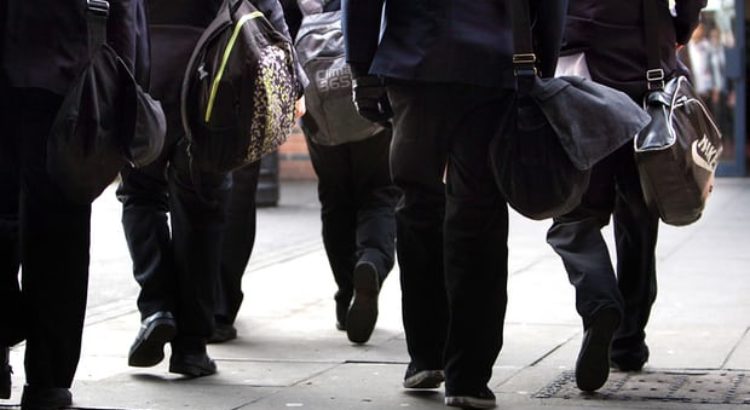Europa/Reino Unido/The Guardian
Resumen: Un número cada vez mayor de niños son excluidos innecesariamente de las escuelas y «abandonados» en la provisión alternativa (AP), que con demasiada frecuencia no les proporciona la educación que necesitan para prosperar, según un comité de diputados de varios partidos. Un informe crítico del comité selecto de educación de Commons dijo que las políticas de comportamiento de tolerancia cero significaban que demasiados alumnos eran castigados y excluidos por incidentes que deberían ser manejados dentro de la escuela. Si bien coincidieron en que un enfoque de tolerancia cero a las drogas o las armas era completamente razonable, los parlamentarios advirtieron a las escuelas que no reaccionaran de forma exagerada a infracciones leves del corte de pelo o políticas uniformes que llevaran a los alumnos a ser «castigados innecesariamente». El informe también identificó una «falta de responsabilidad moral» por parte de muchas escuelas, con poco o ningún incentivo para retener a los alumnos desafiantes. E hizo un llamamiento al gobierno para abordar el problema de la retirada progresiva, donde los alumnos son eliminados del registro antes de sus GCSE para ayudar a las escuelas a maximizar los puntajes de las tablas de la liga.
Education committee report claims too many children are punished for minor incidents.The number of pupils excluded from school rose to 40 a day in 2016-17, up from 35 the previous year. Photograph: David Jones/PA
An increasing number of children are being unnecessarily excluded from schools and “abandoned” in alternative provision (AP) which too often fails to give them the education they need to thrive, according to a cross-party committee of MPs.
A critical report by the Commons education select committee said that zero-tolerance behaviour policies meant too many pupils were being punished and excluded for incidents that should be managed within the school.
While they agreed a zero-tolerance approach to drugs or weapons was entirely reasonable, MPs warned schools against overreacting to minor breaches of haircut or uniform policy which led to pupils being “punished needlessly”.
The report also identified a “lack of moral accountability” on the part of many schools, with there being little or no incentive to retain challenging pupils. And it called on the government to address the problem of off-rolling – where pupils are removed from the register before their GCSEs to helpschools maximise league table scores.
The publication on Wednesday of the committee’s Forgotten Children report follows government statistics last week which revealed a sharp rise in the number of children excluded from state schools in England. There have been more than 40 permanent exclusions a day in 2016-17, compared with 35 a day the previous year.
The education committee described the exclusion rate as “a scandal” and raised additional concerns about “alarming” increases in hidden exclusions, where pupils are kept in internal isolation on school sites or informally excluded.
It also called on the government to look into whether financial pressures and accountability measures were preventing schools from providing early intervention and support, and therefore contributing to the “exclusions crisis”.
“The young people who are excluded are the forgotten children,” said the Conservative MP Robert Halfon, who chairs the committee. “Many already face a host of challenges, with children in care, children in need, children with Send (special educational needs and disabilities), and children in poverty, being far more likely to end up in AP. They deserve the best possible support but often they don’t get the education that they need to thrive.”
The report called for a bill of rights to ensure better support for parents and pupils who find themselves at the mercy of a system described as “a wild west of exclusions” and weighted heavily in favour of schools.
“We need much better provision,” added Halfon. “With teachers being encouraged to work in AP, and we need to strip away some of the stigma by renaming pupil referral units (PRUs) and genuinely seeing them as places for education, learning and support.”
Nick Gibb, the schools standards minister, said the number of children being excluded was lower than it was 10 years ago but exclusions should only ever be used as a last resort.
“The rules are clear that they should always be reasonable and justified. Where pupils are excluded the quality of education they receive should be no different than in mainstream settings.
“We are taking a range of actions to drive up the quality of alternative provision, and have launched an external review to look at how exclusions are used and why certain groups are disproportionally affected.”
Paul Whiteman, the general secretary of school leaders’ union NAHT, said a decision to exclude a student was always a last resort. “School leaders need the autonomy to decide when and how to exclude students to protect the health, safety, education or wellbeing of other pupils and staff.
“This is an area where prevention is better than cure, but budgets are at breaking point so many of the measures that schools take to ensure good behaviour and adequate support for pupils are under threat.”
Anna Feuchtwang, chief executive of the National Children’s Bureau, said: “The vast majority of disabled children, and those with special education needs, can and should be educated in mainstream schools. Yet the steep increase in exclusions comes as schools struggle to provide appropriate support for pupils that could enable them to retain their school place.”
Dr Mary Bousted, joint general secretary of the National Education Union, said: “The government needs to tighten the regulation of alternative provision so every child in an alternative setting has the same educational opportunities as pupils in mainstream schools.”
Fuente: https://www.theguardian.com/education/2018/jul/25/children-abandoned-after-school-exclusions-say-mps







 Users Today : 257
Users Today : 257 Total Users : 35459852
Total Users : 35459852 Views Today : 430
Views Today : 430 Total views : 3418402
Total views : 3418402